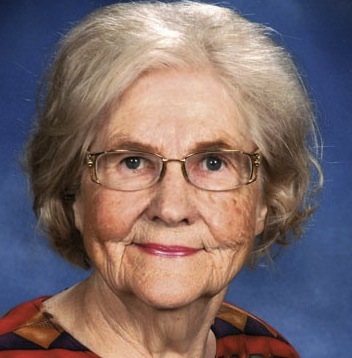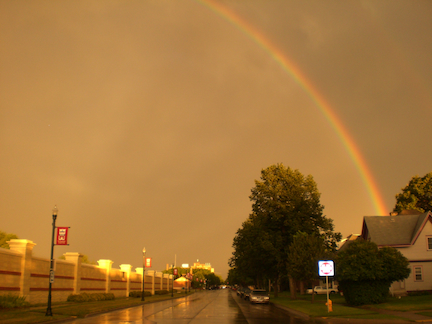Marilyn Hagerty Once Mentioned Me in a Column
 I live in Grand Forks, North Dakota. I have met Marilyn Hagerty. I have not eaten at the new Olive Garden.
I live in Grand Forks, North Dakota. I have met Marilyn Hagerty. I have not eaten at the new Olive Garden.
Until recently, I would have to explain that Marilyn Hagerty writes restaurant reviews for the Grand Forks Herald. But not after what Anthony Bourdain calls “her infamously guileless Olive Garden review” a year ago last March. The review went viral when people elsewhere used it to congratulate themselves for having more sophisticated tastes or, in a second wave of comments, took offense that such earnestness would earn this salt-of-the-earth writer such scorn.
Now Hagerty has published Grand Forks: A History of American Dining in 128 Reviews, whose title is pretty self-explanatory. I went to the University of North Dakota in Grand Forks as an undergraduate, and I’m faculty now. Reading her book was like visiting old haunts, many of them long gone.
Watching Hagerty go viral was a strange experience for people in Grand Forks—our town isn’t home to a lot of celebrities. What made it especially surreal was seeing ourselves reflected in the fun-house mirror of blog posts and news articles by people who have never been here but were sure they knew all about about us. Both reactions—the self-congratulatory and the offended on Hagerty’s behalf—seemed to come from the assumption that we’re earnest people immune to the irony that pervades the post-modern cosmopolitan world of the coasts. We’re simple and therefore worthy of disdain or admiration, or some combination. Or, as Anthony Bourdain writes in his preface to Grand Forks:

This is a straightforward account of what people have been eating—still are eating—in much of America. As related by a kind, good-hearted reporter looking to pass along as much useful information as she can—while hurting no one … This book kills snark dead. (p. ix–x)
In other words, what was striking was the claim, made at a distance, about what it means to be here. And by “here” I mean where I am sitting, in my house facing 3rd Street, just north of downtown. Bourdain’s observation is a symptom of a nostalgia for a simpler time, one that—from his perch in New York City—appears to exist here. The distance from there to here is one of time as well as space:
Grand Forks is not New York City. We forget that—until we read her earlier reviews and remember, some of us, when you’d find a sloppy joe, steak Diane, turkey noodle soup, three-bean salad, red Jell-O in our neighborhoods … A prehipster world where lefse, potato dumplings, and walleye were far more likely to appear on a menu than pork belly. (p. viii–ix)
So what does it mean to “kill snark dead”? Snark is what we get when we try through sarcasm to negate what other people say. We pull their rhetorical rug out from under them, so to speak, but in the most cynical way—we know they’re wrong, but we can’t come up with something better ourselves. The truth is, we have no rug, either. It’s a symptom of the post-modern cosmopolitanism of the coasts (which are no longer “prehipster”), or so I’m led to believe.
Marilyn Hagerty does not do snark. On the contrary, she admonishes her readers:
To me, it’s embarrassing when companions make noisy complaints in restaurants. In fact, I avoid complaining even when asked by the waitress if everything is OK. I usually just nod my head and say everything is fine.
But one of my friends tells me, “You are wrong.” She maintains that it helps the restaurant when you let them know what you don’t like.
OK. I’ll concede you should let them know. But I think you should do it politely. (p. 5)
But this doesn’t mean Marilyn Hagerty is simple or naive. Far from it. By Bourdain’s account,
In person, she has a flinty, dry, very sharp sense of humor. She misses nothing.
I would not want to play poker with her for money. (p. ix)
The few times I have met her, I’ve been left with the same impression. What people missed when they read her Olive Garden review is that her humor—what we might read as a refined sense of irony, even if she wouldn’t call it that—shows up in her reviews, if you know where to look. Her irony doesn’t take the form of snark, but it isn’t the simple earnestness for which Bourdain is nostalgic, either. It’s flattering for a town like Grand Forks to be noticed by people like Bourdain, but to the degree that their recognition of the town flattens out the experience of living here, it misses the point.
So what’s it like to live here? I can speak only from personal experience, but I don’t think I’m terribly different from other people here. I’m aware of what’s happening elsewhere. I travel there often. The fabric of the world beyond Grand Forks is woven into the fabric of Grand Forks, too, and it’s the tug between there and here that gives texture to the micro-structure of feeling (if I may abuse Raymond Williams’s useful term) that characterizes life here. Hagerty is aware of this, too. She travels. She takes the same approach to reviewing New York’s Le Bernardin as she does to reviewing the Grand Forks Olive Garden. The effect is funny and suggests there’s more to her approach than she’s letting on. Her humor is even clearer in the notes that accompany her reprinted reviews in Grand Forks. After her reviews, a quick note appears: “Topper’s succumbed to a fire and the site is now home to a bank” or “Starlite was evicted from the Grand Cities Mall in August 2002 for nonpayment of its rent” or “Mexican Village continues to operate in Grand Forks.” After her review of Le Bernadin, she adds, “Le Bernardin continues to operate in New York.”
(By the way, if you’re ever in Grand Forks, I recommend Rhombus Guys Pizza and, if your timing is right, the Saturday night dinners at Amazing Grains. I cooked for the Amazing Grains dinner once, and Marilyn Hagerty mentioned me in a column.)



